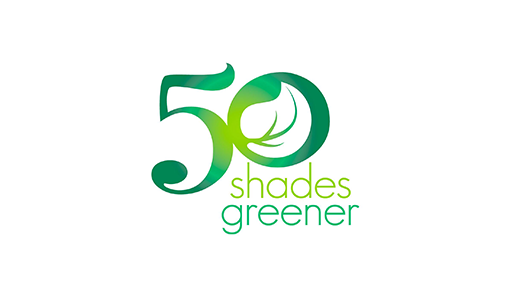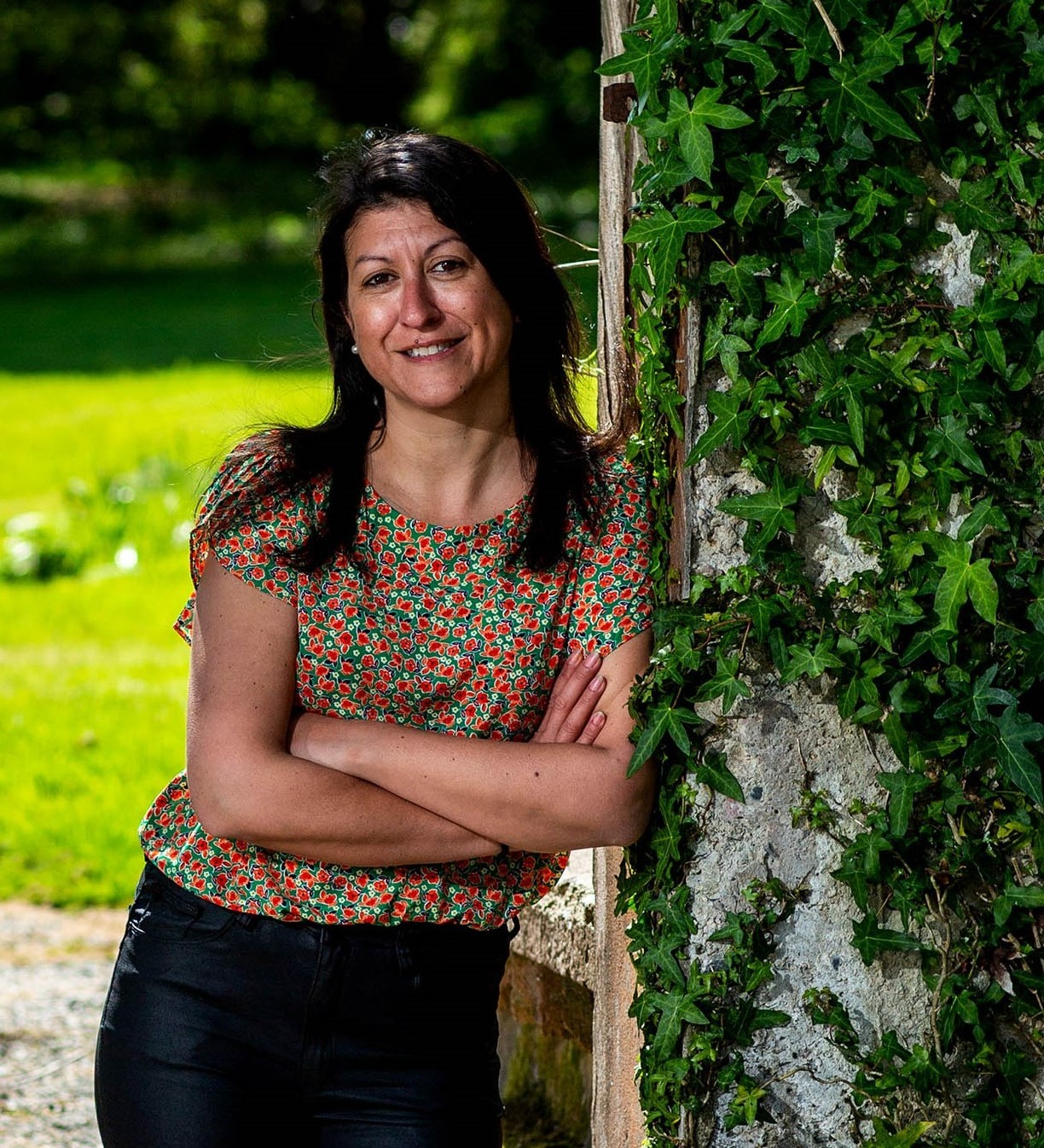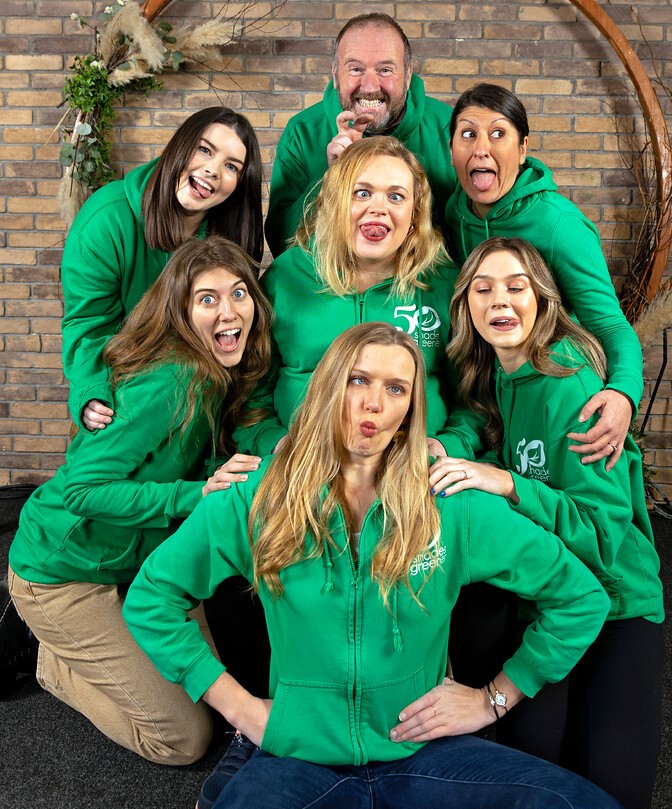
This small company which educates organisations on how to reduce their carbon footprint through changing their behaviours showcases its own commitment to learning through its tailored employee induction programme. Green Skills for Life is central to the training, staff receive multiple opportunities to apply learning to real situations and as staff numbers and knowledge has increased, there has been a steady increase in turnover.
Fifty Shades Greener
Year awarded 2023
Region Ireland
Size <50 employees
Sector Education and Training
Raquel Noboa is a business leader on a mission. Her goal is to demystify the perceived complexity of sustainability and climate action and provide people with the skills and knowledge to measure, manage and reduce their own environmental impact. Educating people through action-led training is her tool to making this happen.
Raquel’s own story is a fascinating one. She arrived in Ireland at the age of 17 to learn English and got a job in a hotel to earn some income. She progressed through the ranks and ended up in hotel management.
In 2004 Raquel was managing a 6-star resort in the Maldives when the Indian Ocean earthquake and tsunami hit that claimed the lives of 230,000 people. Raquel survived but the situation led to her experiencing long-term trauma about the impact of natural disasters and the devastation they can cause.
In 2012, Raquel was back in Ireland and was working at Hotel Doolin when the General Manager decided that he wanted to make the hotel the ‘greenest’ in the country.

“I knew very little about sustainability and being green at this point but I began researching and learnt that if I reduced the hotel’s energy, waste and water usage I would be reducing the hotel’s environmental impact.
I started measuring outputs and then observed how my team was using resources. For example, the breakfast chef would arrive and turn on all of the machines on in the kitchen. When I asked him if he needed to have all of the ovens on, he said he didn’t. I worked out that if one of those ovens was off for an hour a day it would reduce the hotel’s electricity bill by 2,500 euros. And that was the cost-saving on one oven.”
Raquel worked with the Head Chef using stickers to indicate when appliances should be turned on and off and by using similar techniques across other departments she managed to cut the hotel’s use of energy by 30%, waste by 40% and water by 25% purely through the more efficient use of resources. Savings were then used for larger capital projects such as getting solar panels and changes to the heating system. The hotel became the first carbon neutral hotel in Ireland. This was impetus for Raquel to create Fifty Shades Greener.
Initially founded in 2018, Fifty Shades Greener focused on sustainability training within the hospitality sector. In 2020 the organisation was provided with an opportunity to grow when – in response to the Covid pandemic – the Irish Government invested in its ability to train via its e-learning platform. This training was rolled out initially across the hospitality sector and then also moved to delivering the training to schools across Ireland.
Fifty Shades Greener expanded rapidly from one to nine employees and Raquel knew that upskilling the team was essential to be able to meet the demand of them training thousands of students.

The online programme uses action-based learning focused on simple everyday actions that can reduce energy, waste and water usage. The training allows the learner to calculate their own CO2 emissions on an ongoing basis (through inputting data from utility bills) to measure the actual change occurring from implementing the actions learned.
Raquel invests heavily in training. Alongside the team working a 4-day week as standard, they also have half a day per week allocated to training. Outcomes include the team taking on more responsibilities in leadership positions, increased confidence and the ability the provide service excellence, all of which has had a positive knock-on effect for the business.
As Raquel summarises:
“Our team has come from having some knowledge of sustainability, to being able to measure, manage and reduce their own CO2 emissions which in turn reduces the company’s environmental impact. This has led to behavioural change across our team, trainers and learners and a collective culture of sustainability.”
With business registrations increasing from 40 to over 270 in two years, new markets opening across secondary schools and Further Education and Training centres and reaching over 20,000 learners, what’s next on Raquel’s agenda for Fifty Shades Greener?
“I want education for sustainable development to be part of all educational curriculums across the world from primary to third level education. I want learners to have the knowledge and skills to become active, informed citizens who will take action for a more sustainable future.”
Raquel also shares how her work has had a positive impact on her personally:
“The ecoanxiety I suffered since surviving the tsunami in 2004 has almost disappeared, because I feel I am doing the best I can for the planet we all share, and that has made me feel powerful within my own life. I now hope that through our educational programmes, I can do the same for other people.”

0 Comments